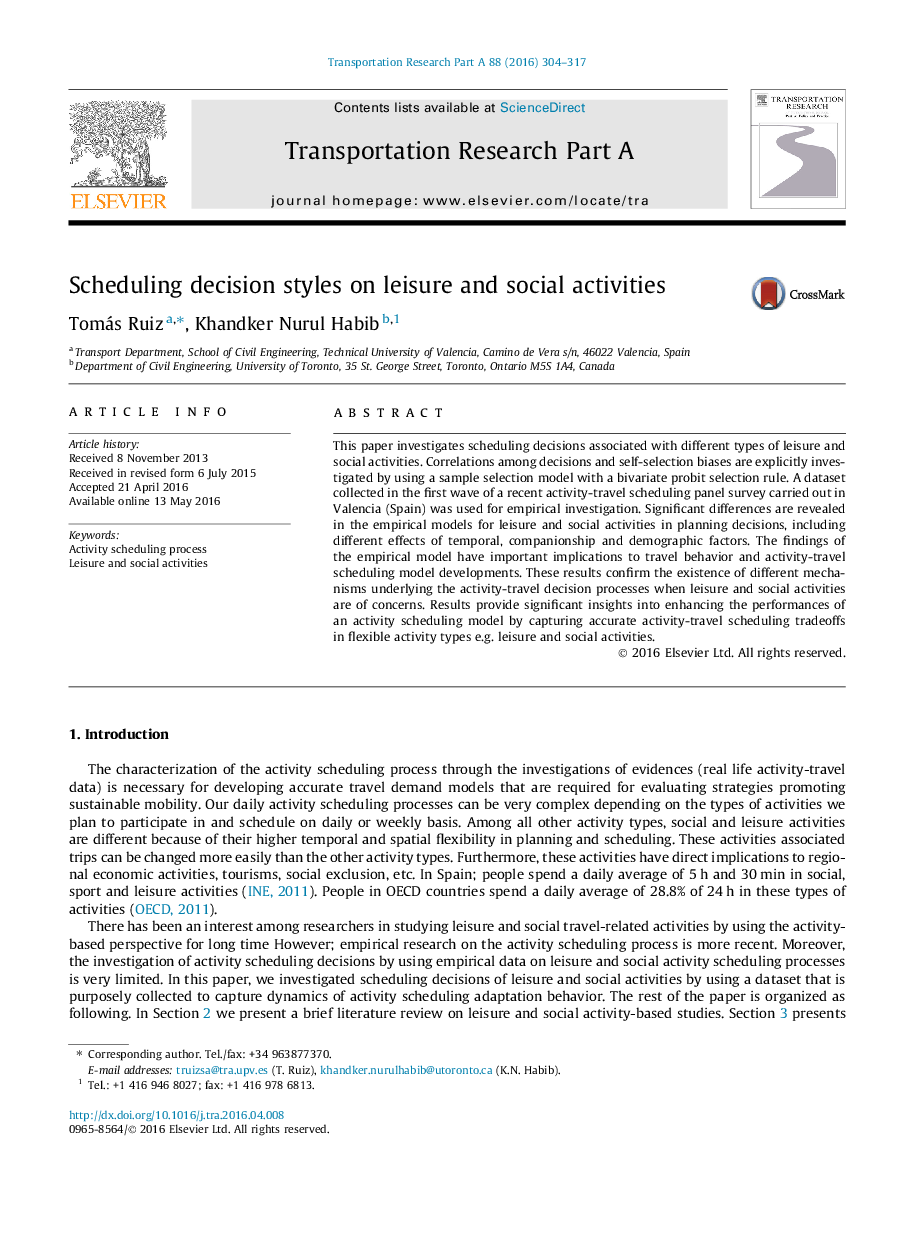| Article ID | Journal | Published Year | Pages | File Type |
|---|---|---|---|---|
| 6780938 | Transportation Research Part A: Policy and Practice | 2016 | 14 Pages |
Abstract
This paper investigates scheduling decisions associated with different types of leisure and social activities. Correlations among decisions and self-selection biases are explicitly investigated by using a sample selection model with a bivariate probit selection rule. A dataset collected in the first wave of a recent activity-travel scheduling panel survey carried out in Valencia (Spain) was used for empirical investigation. Significant differences are revealed in the empirical models for leisure and social activities in planning decisions, including different effects of temporal, companionship and demographic factors. The findings of the empirical model have important implications to travel behavior and activity-travel scheduling model developments. These results confirm the existence of different mechanisms underlying the activity-travel decision processes when leisure and social activities are of concerns. Results provide significant insights into enhancing the performances of an activity scheduling model by capturing accurate activity-travel scheduling tradeoffs in flexible activity types e.g. leisure and social activities.
Related Topics
Physical Sciences and Engineering
Engineering
Civil and Structural Engineering
Authors
Tomás Ruiz, Khandker Nurul Habib,
